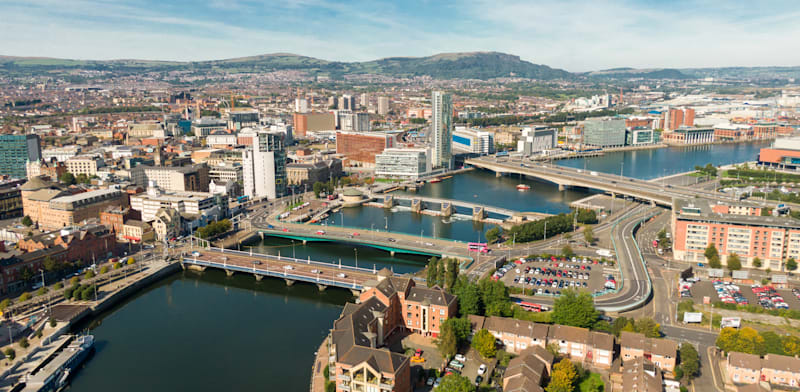The Irish government, one of the EU countries most harshly critical of Israeli policy, continues to try and exert political pressure at both the local and EU levels. Irish Foreign Minister Simon Harris initiated discussions in parliament in Dublin this week on a bill that would impose a boycott on Israeli products from Jewish settlements in the West Bank. In doing so, Ireland could become the first country in the EU to do impose such an embargo. This is a repeated effort by the Irish government to take this step, after previous initiatives failed because they contradicted EU laws, and its need to speak “with one voice” internationally.
The 27 EU member states have “granted” the pan-European organization exclusive powers in the field of trade, so that ostensibly, Ireland cannot decide for itself which products to boycott based on origin and provenance, and this must be accepted at the EU level. An attempt by previous governments to pass the law failed. However, the current government, encouraged by pro-Palestinian public opinion in the country and the success of the initiative to “reexamine” the EU’s basic agreement with Israel, is trying again to pass what is called the “Occupied Territories Act”. The legal background for the renewed attempt is the ruling of the International Court of Justice (ICJ) on the illegality of the Israeli occupation. If the issue is sent for legal review, the Irish will argue that the legal situation has changed.
Harris introduced the government’s bill in the Irish parliament on Tuesday, saying that it was intended, among other things, to put pressure on Israel to end the war in Gaza, and what he defined as “war crimes being committed in the Gaza Strip”. The UK “Financial Times,” said the bill was submitted to the drafting stage this week, and noted that trade in goods between Ireland and Israel is “negligible”. Between 2020 and 2024, Ireland imported goods worth only €685,000 from companies operating across the Green Line, including fruits and vegetables, cosmetics, and furniture.
The bill includes a ban on services
The big question is whether the Irish government will include in the bill a boycott on services, not just goods. Since Airbnb is headquartered in Dublin, Ireland, as are many international corporations, a law that would ban services from settlements would require the site to remove properties for rent across the Green Line. “The key issue will be whether the government will provide a complete boycott of all trade with settlements in Israel, including both physical goods, such as dates and oranges, and products from the services sector,” a spokesman for an Irish charity told the “Financial Times.”
RELATED ARTICLES
Anti-Israel public sentiment is certainly trying to make that happen. A letter from some 400 Irish academics and lawyers called on the government to adopt such a ban on services as well. They believe legal justification for the move, is the opinion of the International Court of Justice (ICJ), which called on countries, among other things, to “take steps” to avoid trade that aids the Israeli occupation of the territories. “Such a step could oblige Airbnb to remove rental ads in the settlements and territories, because the US company is registered in Dublin and is subject to Irish law,” the newspaper noted. In the past, the US company had reported an initiative to remove ads from the settlements, but it withdrew it.
Harris told the media that the country had started the initiative, among other things, to encourage other countries in the EU to take similar steps.
Airbnb did not respond to the “Financial Times” request for comment.
Published by Globes, Israel business news – en.globes.co.il – on May 29, 2025.
© Copyright of Globes Publisher Itonut (1983) Ltd., 2025.








